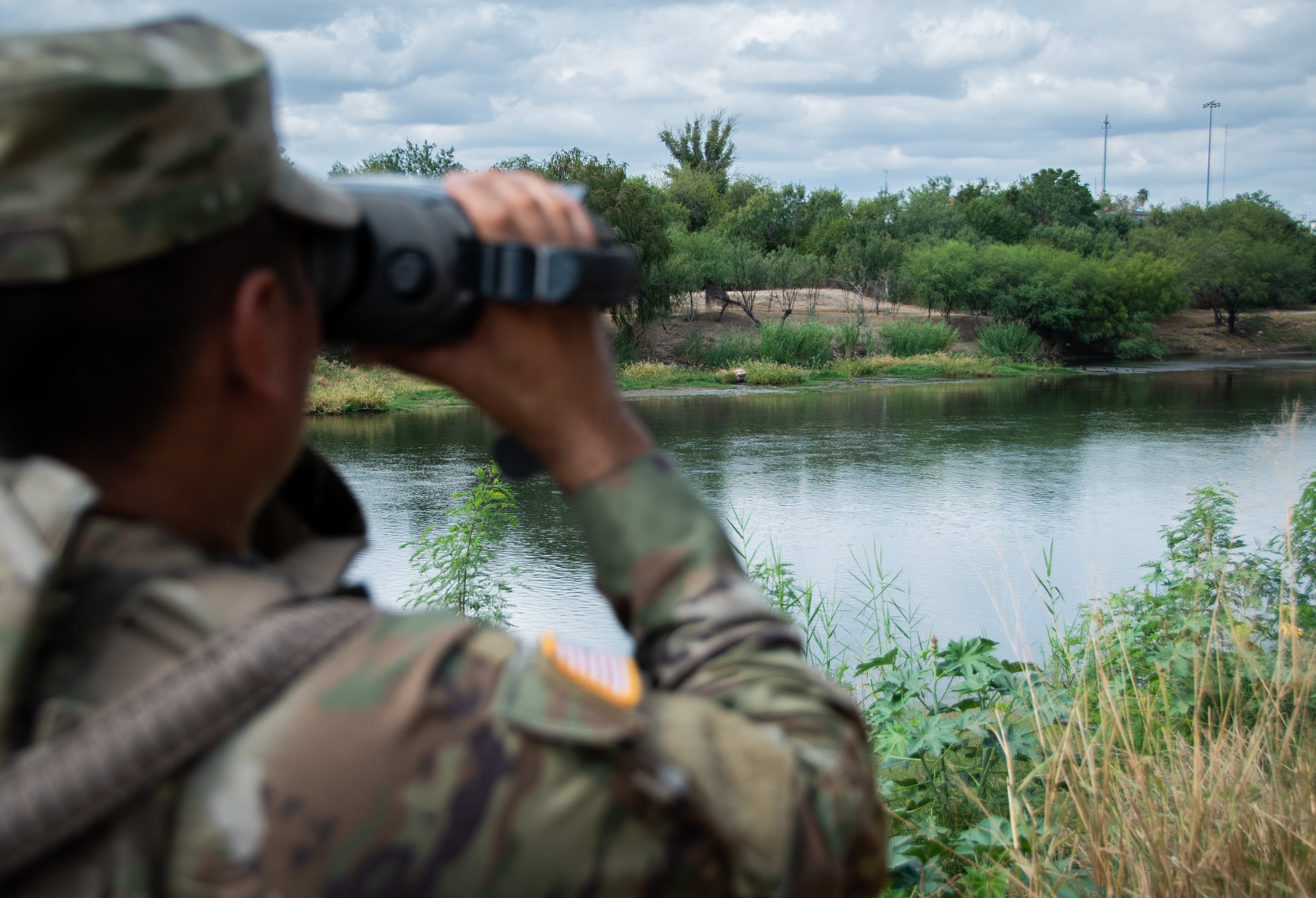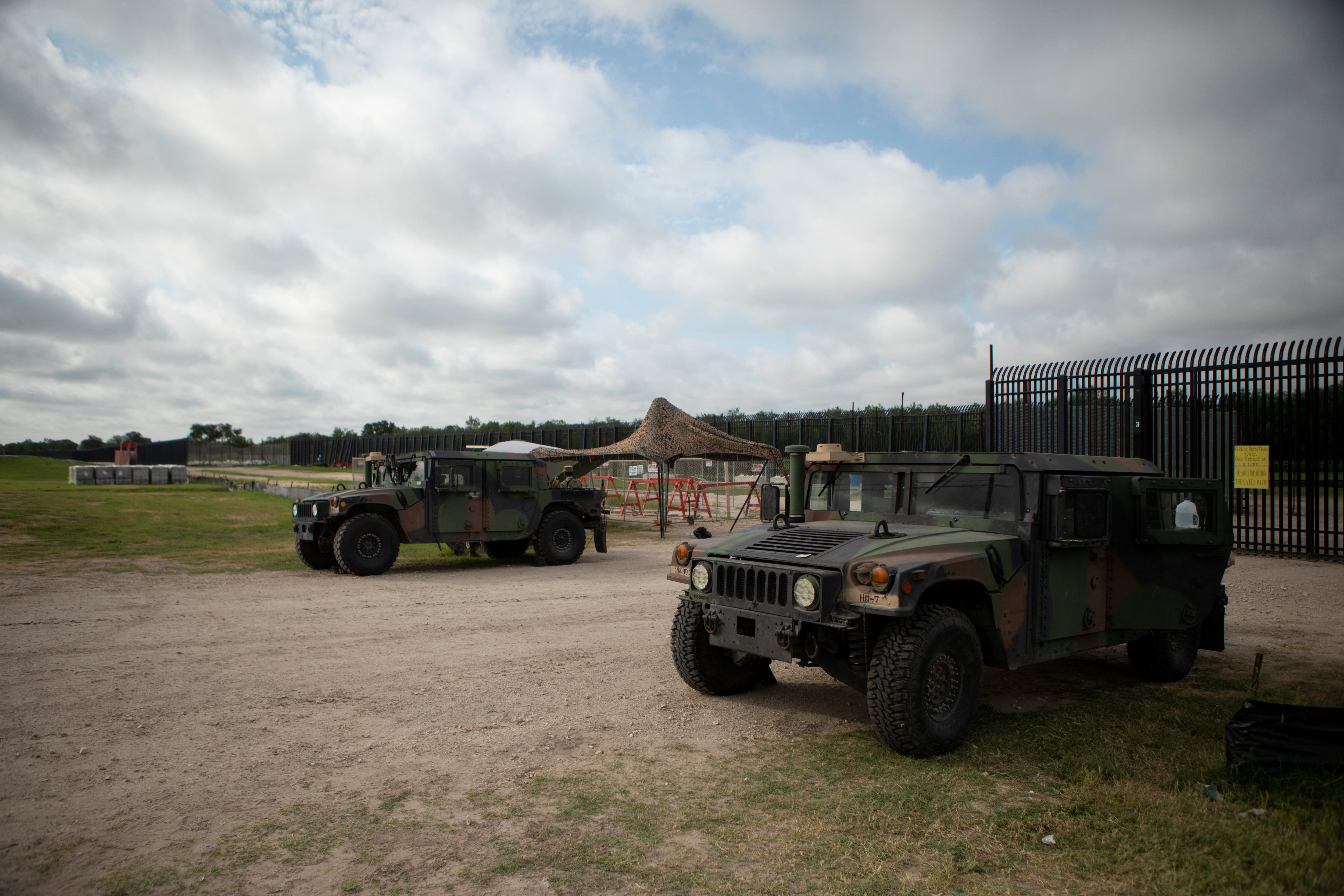This article is co-published and co-reported with the The Texas Tribune, a nonprofit newsroom that informs Texans about state policy and politics. Sign up for The Brief, its daily newsletter.
A junior Texas National Guard soldier disabled a suspected smuggling vehicle with his M4 carbine in an effort to save his partner early Tuesday morning just south of Laredo, Texas, Army Times has learned.
The two soldiers were assigned to Operation Lone Star, the state’s troubled mission to stem human trafficking and drug smuggling at the U.S. border with Mexico.
Texas Rangers are investigating the shooting, according to Ericka Miller, press secretary for the Texas Department of Public Safety. Miller said “no additional information is available at this time,” citing the ongoing investigation.
The Texas Military Department declined to provide a statement and directed inquiries to DPS.
RELATED

The two Guard soldiers were assisting Border Patrol agents in stopping a Chrysler 300 that was seen picking up six migrants, according to an incident report obtained by Army Times and a Texas law enforcement official who discussed preliminary investigative details on background.
The two soldiers jumped out of their “non-tactical” vehicle at the intersection of Rosemary Lane and Nogal Lane in the border sector south of Laredo, and one soldier approached the suspected smuggling vehicle, according to the incident report.
The driver “put the vehicle in reverse and then into drive” before gunning the vehicle in an apparent attempt to ram the first soldier, the incident report read. The second soldier then fired six rounds from his M4 carbine into the Chrysler’s radiator and hood.
The suspected smuggler, who “appears” to be a U.S. citizen, did not make it “far down the road” before abandoning the vehicle, the law enforcement official said.
The driver was arrested and will likely face charges of aggravated assault and “several other felonies,” the incident report read. A Texas Ranger who oversaw the initial investigation said the soldier “was justified in his decision to fire at the vehicle,” the incident report added.
Risk and benefits
The paratroopers assigned to the border sector south of Laredo are from 1st Battalion, 143rd Infantry Regiment. They face a higher workload than most of the units on Operation Lone Star, according to a soldier in the sector.
The service member, who spoke with Army Times on condition of anonymity to prevent retaliation, expressed frustration with the unit’s training and working conditions.
“[We] are given a 3-4 hour course on [law enforcement officer] training, but are expected to act as professional law enforcement officers,” the soldier said in a text message. “This isn’t a sustainable model,”
Guardsmen in this sector have to swap body armor plates between shifts because they only have enough of the equipment to protect those who are actively working, according to the soldier.
“We’ve had the chance to catch some bad people, save drowning people and work with the community,” the soldier said. “[But] it’s tough when you know you’re catching people who are only seeking a better life...[and] it’s frustrating to work in dangerous and exhausting conditions and ask [that] of the soldiers, knowing damn well they are being used and abused by the state for no benefits.”
Because Operation Lone Star is a state-run, state-funded mission conducted on state active duty, the Texas Guard personnel on the border are not eligible for many of the benefits traditionally associated with military service. That includes the G.I. Bill, the Veterans Affairs home loan subsidy, the state’s Hazelwood Act tuition benefits and VA disability benefits for those who may get hurt.
The lack of a long-term safety net is what worries the Guardsman most.
“The living conditions we’re in could result in long-term or permanent injury,” the soldier said about VA benefits. “But now we’re seeing violence, all without federal sanction or benefits of any sort.”
Davis Winkie covers the Army for Military Times. He studied history at Vanderbilt and UNC-Chapel Hill, and served five years in the Army Guard. His investigations earned the Society of Professional Journalists' 2023 Sunshine Award and consecutive Military Reporters and Editors honors, among others. Davis was also a 2022 Livingston Awards finalist.




